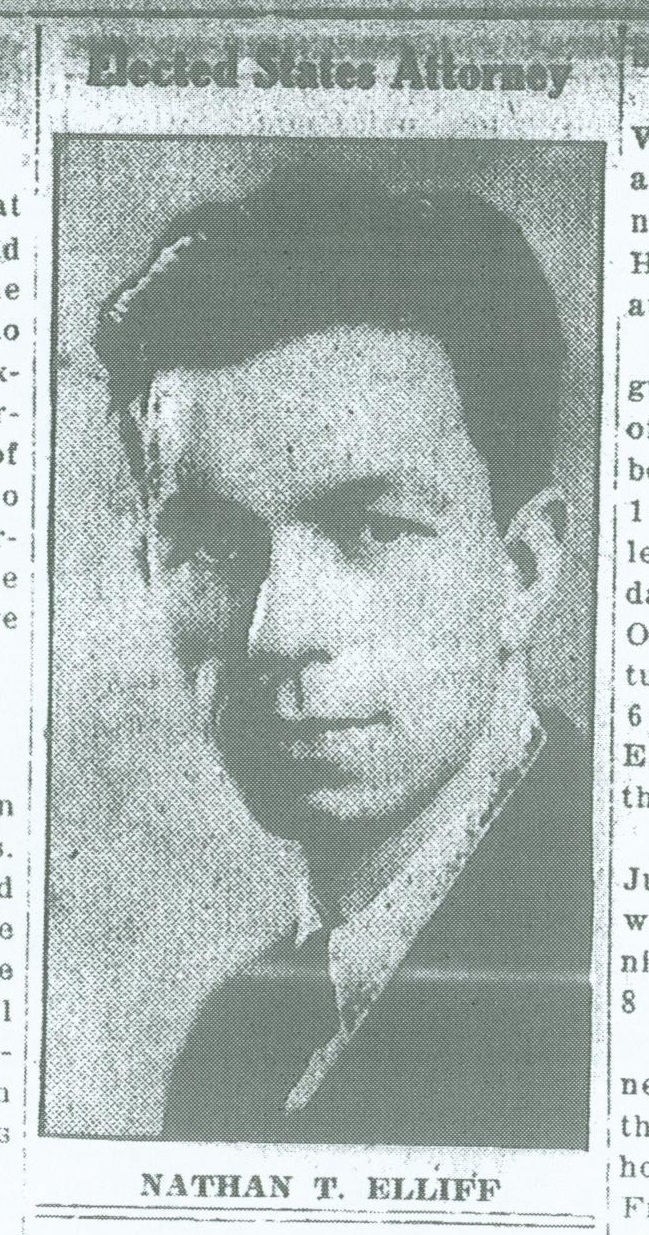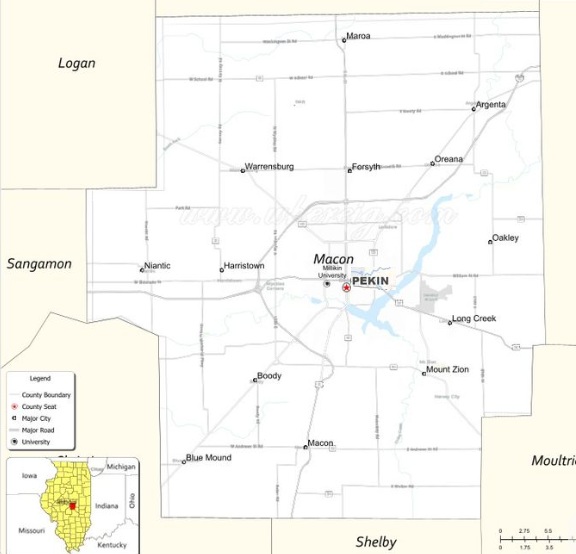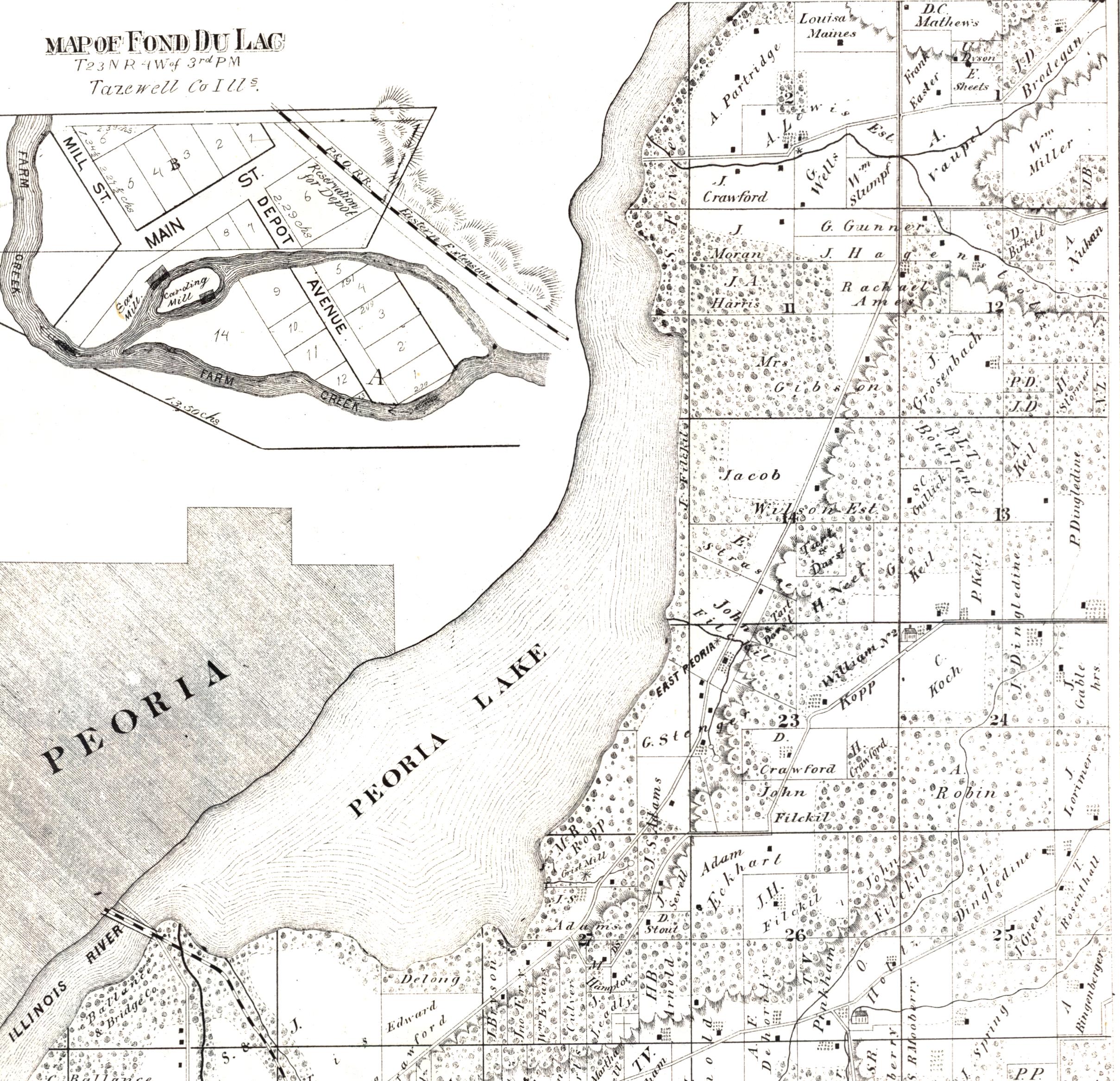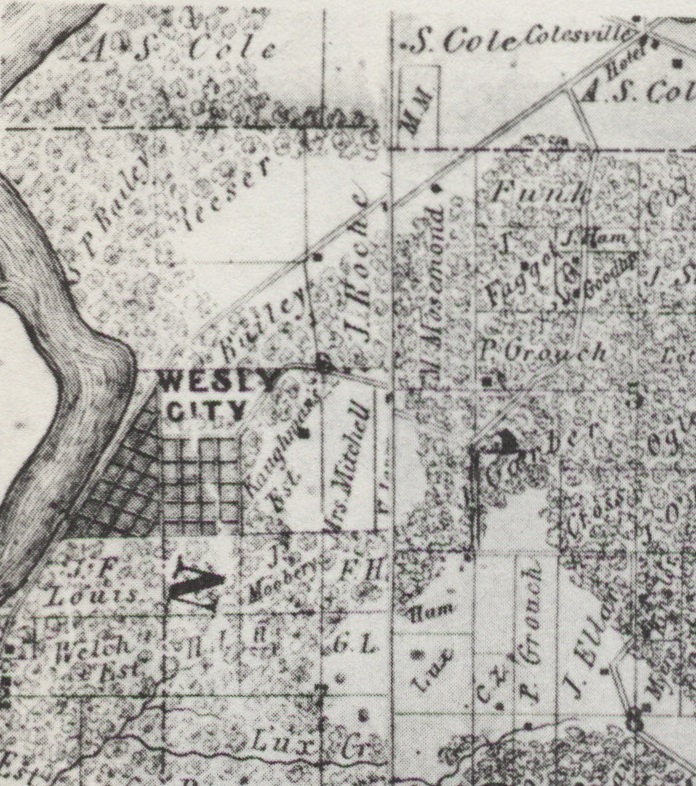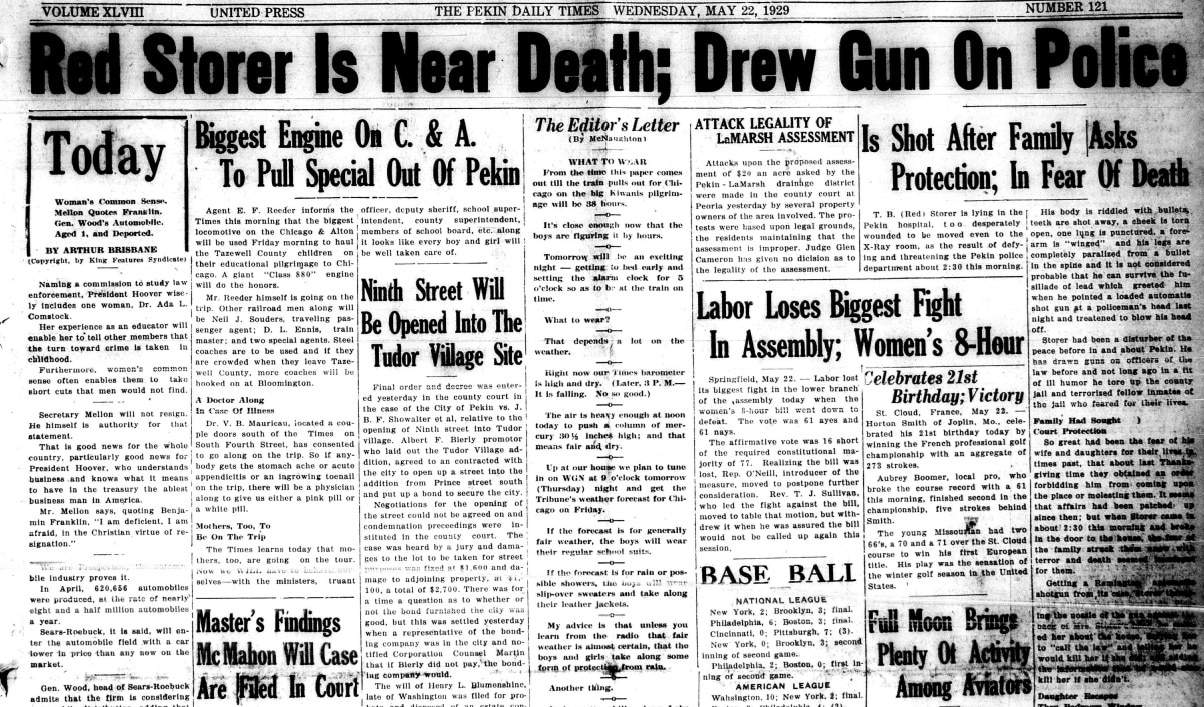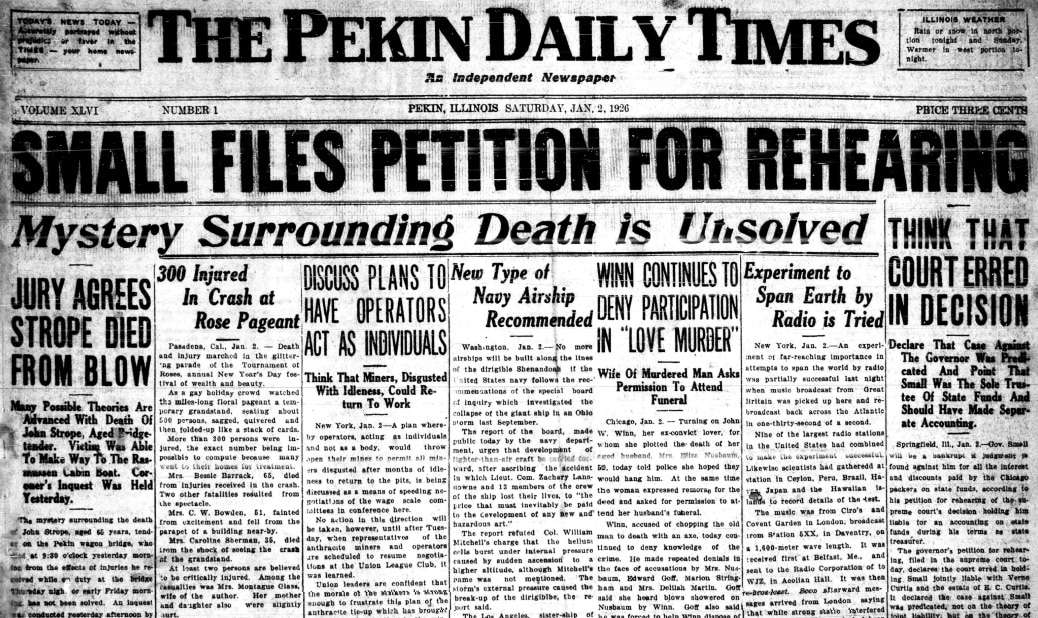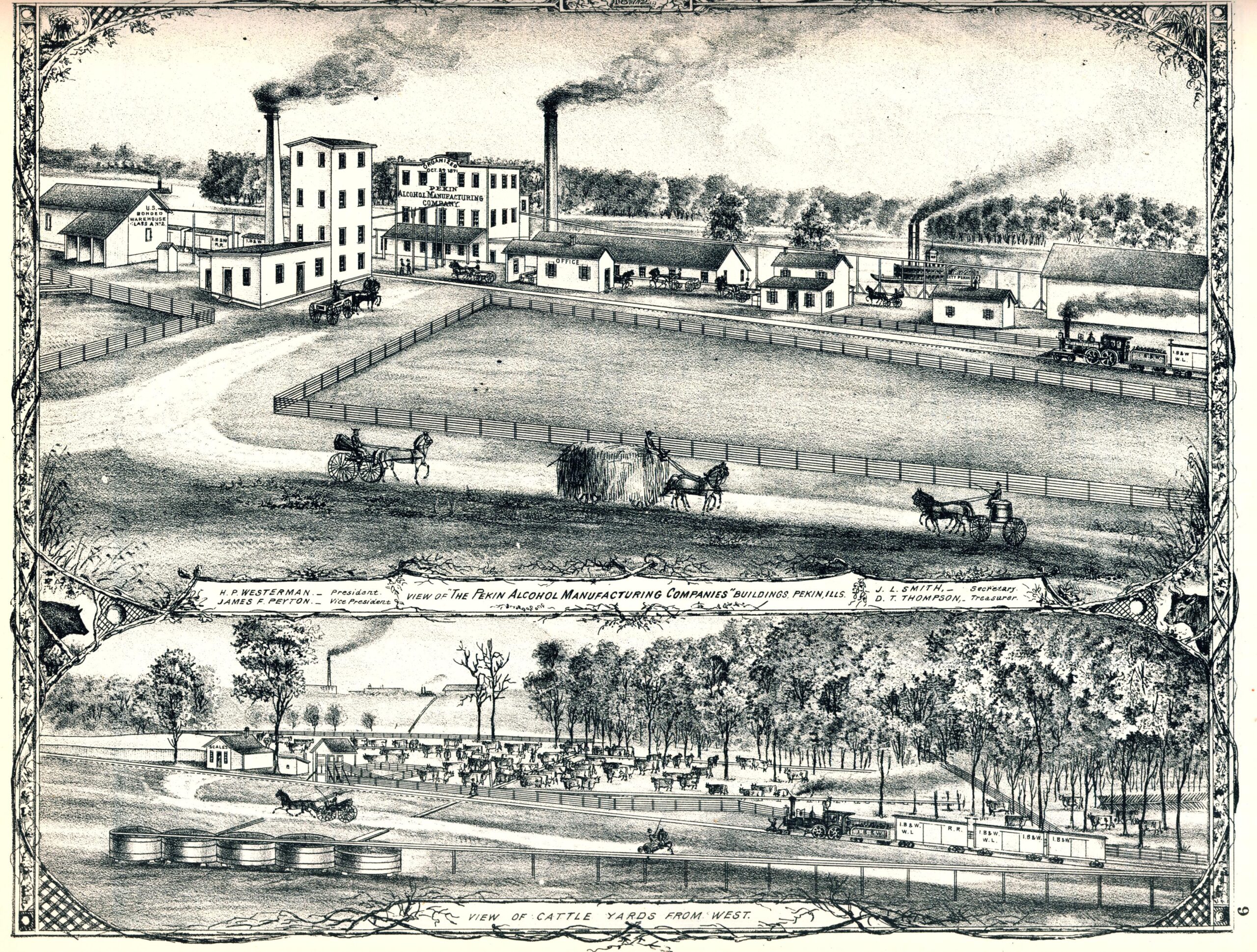With this post to our Local History Room weblog, we continue our series on a pair of sensational deaths that occurred in Pekin, Illinois, during the Prohibition Era. The Local History Room columns in this series, entitled “The Third Degree,” originally ran in the Saturday Pekin Daily Times from Sept. 15, 2012, to March 2, 2013.
THE THIRD DEGREE
By Jared Olar
Library assistant
Chapter Twelve
The Virant manslaughter trial is moved
Election Day in 1932 was historic, dealing an overwhelming victory to the Democratic presidential candidate Franklin Delano Roosevelt and his party, and ushering in the era of “the New Deal” which was to bring about a revolution in the scope and power of the federal government and its relationship with the American people.
But the outcome of the national election also had an immediate effect on local affairs in Tazewell County, where Republican office holders were swept out by the Democratic tidal wave. That included two incumbents: the coroner, Dr. A. E. Allen, and the state’s attorney, Louis P. Dunkelberg, both of whom had sought a third term in office.
Dunkelberg was ousted by Nathan T. Elliff, a young and comparatively inexperienced Pekin attorney. As Elliff prepared to assume his duties, the Pekin Daily Times (Dec. 3, 1932) offered a brief farewell tribute to Dunkelberg, and welcomed Elliff as one who “has already shown much ability in his chosen profession. Thruout the county he is well favorably known. The public has confidence in him and knows that the office of states attorney will be in good hands and that faithful and conscientious service will be rendered . . . .”
Despite the Daily Times’ optimism, Dunkelberg’s replacement by someone much less experienced did not necessarily bode well for the prosecution of Tazewell County Sheriff’s Deputies Ernest L. Fleming, Charles O. Skinner and Frank Lee, who had been indicted for manslaughter in the beating death of jail inmate Martin Virant. Unsurprisingly, Elliff’s fellow Democrats Fleming, Skinner and Lee had quietly worked for Dunkelberg’s defeat.
Meanwhile the deputies’ boss, Sheriff James J. Crosby, was in a fight for his life – not his political life, however, for he was only in the middle of his four-year term and therefore not up for re-election, but his very life. Stricken down by a severe heart attack two days before Election Day, Crosby was moved to Methodist Hospital in Peoria on Nov. 7.
In the follow week, the Pekin Daily Times published almost daily updates on Sheriff Crosby’s health. His condition was very grave, and at one point it was feared that his death was very near, but he rebounded and eventually was able to resume his duties.
While Crosby was hospitalized and at death’s door, the sister of Martin Virant, Agnes Franko, filed a wrongful death lawsuit against the sheriff on Thursday, Nov. 10. Franko sought $10,000 in damages, a hefty sum in those days.
Then on Saturday, Nov. 12, Circuit Court Judge Joseph E. Daily issued his ruling on the motion seeking a change of venue for the manslaughter trial of Fleming, Skinner and Lee. Their attorneys, Jesse Black and William J. Reardon, had argued that the unusual publicity given to this case by local newspapers, especially the Pekin Daily Times, had made it impossible for their clients to obtain a fair trial in Tazewell County.
In defense of its news coverage, on Nov. 2 Daily Times publisher F.F. McNaughton had reprinted an editorial from the Peoria Transcript, which declared that if the deputies are guilty of killing Virant, local newspapers “will be glad to endure criticism for having condemned the officers and the system which led to his death.
“The deputies are entitled to fair trials. They were officers of the law, and their task was not easy. Nevertheless, this newspaper, at least, is proud that it has been vigilant in behalf of the public interest and protestant in the face of the possibility of official cruelty.”
Even so, Judge Daily agreed with attorneys Black and Reardon, announcing that the trial would be moved to Petersburg, county seat of Menard County.
“Judge Daily said that he had considered the case very carefully, taking the affidavits which had been presented by counsel for both the state and the defense to his home and going over them leisurely and with care and he was of the opinion that the defendants had established their fear that they might not get a fair and impartial trial in this county.
“In considering what county the case should be sent to he had made inquiry and investigation in to the circulation of Peoria, Bloomington and Pekin papers in the county and he had found the circulation very small in Menard county. One Peoria paper has 13 subscribers in the county and another has but two, the court learned.”
The trial was expected to be delayed until February of 1933, “as the next term of circuit court convenes there the first Monday in that month,” the Daily Times reported on the front page of its edition of Nov. 26, 1932.
Next week: The Virant trial begins in Petersburg.


